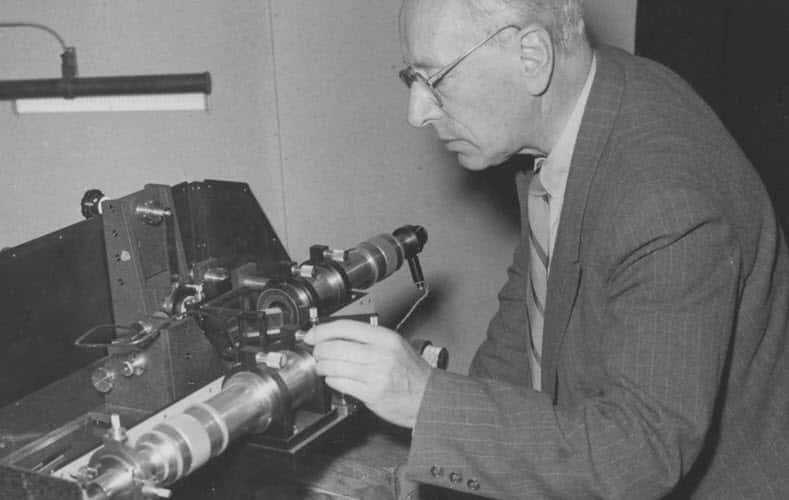Frits Zernike (16 July 1888 – 10 March 1966) was a Dutch physicist and winner of the Nobel Prize in Physics in 1953.
Life and Career
He was born on 16 July 1888, in Amsterdam, Netherlands.
Zernike pursued his education at the University of Amsterdam, where he studied physics and mathematics. He completed his doctoral studies in 1915, focusing on the diffraction of light. His research during this time laid the foundation for his groundbreaking work in optics.
Zernike’s most significant contributions came in the field of optics and specifically in the development of the phase-contrast microscope. He devised this innovative technique, which allowed for the visualization of transparent and unstained biological specimens with enhanced contrast. His invention revolutionized the field of microscopy, enabling scientists to study living cells and structures in greater detail.
Another notable achievement of Zernike was the development of the mathematical concept known as the Zernike polynomials. These polynomials are widely used in the field of optics and have applications in fields such as wavefront analysis, optical aberrations, and image reconstruction.
Zernike continued his academic career, teaching at the University of Groningen in the Netherlands until his retirement. He published numerous papers and made further contributions to the field of optics, including research on polarized light and interference phenomena.
Frits Zernike passed away on 10 March 1966, in Amersfoort, Netherlands.
Award and Legacy
He was awarded the Nobel Prize in Physics in 1953 for his invention of the phase-contrast microscope, a revolutionary technique in microscopy.
His invention, the phase-contrast microscope, remains a vital tool in the field of biology, allowing researchers to study biological specimens in greater detail and without the need for staining. Zernike’s work and inventions have had a lasting impact on the field of optics and have paved the way for advancements in various scientific disciplines.

